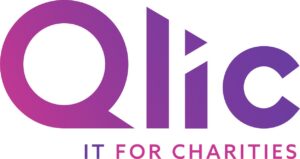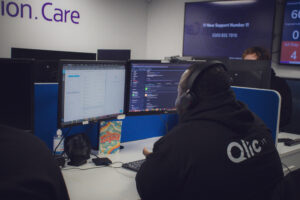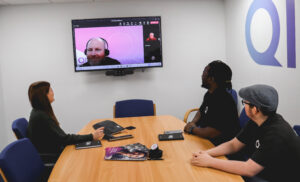Many charities and nonprofit organisations have long faced the challenge of managing projects with limited resources. This is why it’s vital to find an efficient method or application to help manage charity projects. Microsoft Teams is a great example of an application that empowers project management. With its intuitive interface and comprehensive features, Microsoft Teams helps to simplify project management while keeping staff and volunteers involved, informed and connected.
In this blog post, we’ll explore the benefits of Microsoft Teams, including how using Teams for project management can help streamline your processes. We’ll look at how nonprofits can use Teams to create tasks, assign roles, track progress, store documents securely, communicate effectively and more!

The Role of Project Management in Nonprofit Organisations
Charities use project management when they need to plan, organise, and execute projects. It ensures that projects are completed on time and within budget. Charities may use project management for a wide range of activities, such as fundraising campaigns, community outreach programs, events organisation or volunteer management.
By using project management techniques, nonprofits can increase their efficiency, productivity and even impact on the community. They can ensure that their limited resources are allocated effectively and that their projects deliver the maximum benefit to their beneficiaries. Using Teams for project management provides charities with a powerful platform to make the whole process easier.
Microsoft Teams Project Management: Empowering Nonprofits
Microsoft Teams’ interface allows users to project manage with effective communication. Users can set up teams for specific projects and collaborate in real time on their shared tasks and goals. Teams’ effective communication makes it easy to provide feedback, nurture relationships with stakeholders and work with other teams to ensure everyone stays on the same page at all times during the project.
Microsoft Teams is a powerful platform that can streamline nonprofit project management in several ways. One important feature is creating and managing task lists within channels or chats. This feature is one of the many benefits of Microsoft Teams. It allows team members to keep track of individual tasks. Teams also integrates with other Microsoft applications like Planner and Shifts. Planner is a project management planner that provides an easy visual way to organise teamwork. This allows users to manage their projects and tasks all in one place without leaving the Teams interface. Collaboration and communication are also streamlined, Teams provides a real time platform where team members can communicate and work together on documents. Microsoft Teams promotes easy and effective project management for nonprofits.
Microsoft Teams’ Essential Features for Effective Collaboration
Microsoft Teams project management capabilities includes several features that can help streamline collaboration for charities. This includes:
Task Management
Charities can greatly benefit from using Microsoft Teams for task management. This feature helps keep teams organised and on track with their projects. With Teams, users can create and manage task lists within channels or chats, this makes it easy to assign tasks to individuals and track progress.
Additionally, another benefit of Microsoft Teams is that it provides notifications and reminders for upcoming tasks and deadlines. This ensures that everyone is aware of what needs to be completed and in what timeframe. Teams’ task management feature helps teams collaborate effectively and provides a centralised location for task assignment and tracking, all enhancing productivity and improving project management
Video Conferencing
Microsoft Teams for Charities has a well-known video conferencing feature that helps teams collaborate more effectively. With Teams, users can easily connect face-to-face from anywhere in the world with an internet connection. This is a great feature for those working remotely around the world that need to collaboratively work on a project. Teams’ video conferencing also includes features such as screen sharing, and recording which allows users to present their work to others in real time and record capturing important meetings or presentations.
Integration with other Microsoft Apps
Microsoft Teams is part of the Microsoft suite of applications and integrates with other Microsoft applications including Planner, Shifts, Outlook and SharePoint. This provides a seamless collaboration and project management experience. Nonprofit teams can create and assign tasks, set due dates, and track progress directly from Teams. Integration with Outlook enables users to send and receive emails, schedule meetings, and receive notifications, all within Teams.
Microsoft Teams also integrates with SharePoint. This helps to provide a centralised location for document storage and sharing between teams. Team members can access all the Microsoft project management tools they need from a single interface, making it easy to work together effectively.
Microsoft Teams Version Control
Finally, Microsoft Teams offers version control capabilities. This allows team members to work on the same document simultaneously, without the worry of overwriting someone else’s work. Charities can view the entire version history of a document, see who made changes and revert to earlier versions. This makes it easy to track changes, collaborate on documents, and ensure that everyone is working on the most up-to-date version.
Version control also helps streamline project management by providing a centralised location for document storage and sharing. Team members can access the latest version of documents and collaborate in real time, regardless of their location.

Simplify and Succeed with Microsoft Teams
Microsoft Teams is a powerful cloud platform that simplifies collaboration and project management for nonprofit organisations. With features such as real time communication, task management, document version control and integration with other Microsoft applications, Teams provides a centralised location for project management processes. Teams helps to save time and resources while also increasing productivity and improving communication.
With hybrid working being the future, video conferencing capabilities on Teams enhances this by enabling remote workers to connect face-to-face from anywhere in the world. Microsoft Teams is an excellent tool for charities looking to streamline their collaboration and project management processes.
Closing Remarks on Microsoft Teams Project Management
In conclusion, nonprofits can leverage Teams’ real time communication, task management, version control, video conferencing and integration with other Microsoft applications to streamline their processes. Microsoft Teams is an essential tool for nonprofits looking to simplify their collaboration and project management processes, enabling them to make a greater impact in their communities.
Find out how using Microsoft Teams for project management can revolutionise your organisation’s communication, collaboration and workflows. Book your free consultation with our IT experts by clicking the button below.
